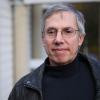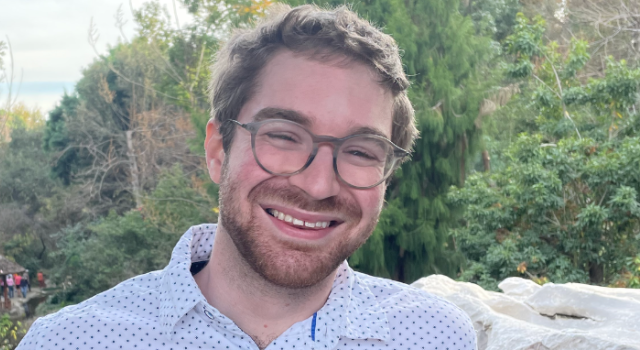
Jeffrey Wallen

Jeffrey Wallen's teaching interests include 19th- and 20th-century comparative literature (German, French, British), critical theory, Holocaust studies, modernism, Jewish studies, psychoanalysis, and philosophy. He has published widely on 19th- and 20th-century European literature; on biography and literary portraiture; on testimony, Holocaust literature, and Berlin Jewish history; and on debates about education. His book, Closed Encounters: Literary Politics and Public Culture was published by the University of Minnesota Press.
Wallen has taught as a visiting professor at the Free University Berlin and at the University of Toulouse, and has been the director of Hampshire's semester-long study abroad program.
Some of his most recent publications are "Beckett in Time of Crisis," "Totem and Taboo: The Perverse Writings of Ka-Tzetnik 135633," "The Lure of the Archive: The Atlas Projects of Walid Raad," "Migrant Visions: The Scheunenviertel and Boyle Heights, Los Angeles," “Twemlow’s Abyss,” "Narrative Tensions: The Eyewitness and the Archive,” "Falling Under an Evil Influence," "The Death and Discontents of Theory," and "Sociable Robots und das Posthumane." He is currently working on a study of the archive in contemporary thought and art.
Recent and Upcoming Courses
-
The 20th century was a period of great upheaval for Jews in all parts of Europe, as they faced transformative pressures of modernization, nationalism, revolution, war, and exile; the literature written by Jews in western, eastern, and central Europe is amazingly rich and diverse. The Jewishness of their writings will not be the central theme, but will serve as the thread to connect a stunning variety of imaginative texts written in a plethora of languages (French, German, Yiddish, Polish, Hungarian, Russian). We will read stories, poems, and short novels that range from the surreal and hallucinatory to the realistic depiction of everyday life. We will also see some films made from these works. Writers will probably include Else Lasker-Schuler, Franz Kafka, Bruno Schulz, Isaac Babel, Anna Seghers, Osip Mandelstam, Paul Celan, Vasily Grossman, Kadia Molodowsky, Georges Perec, Elias Canetti, Irene Nemerovsky, Joseph Roth, Imre Kertesz, Hannah Arendt, Jurek Becker, and Chava Rosenfarb. Keywords:Literature, Jewish Studies
-
Autobiography is not one literary genre among others--autobiographical writing cuts across all distinctions of genre. In the last 30 years, there has been a remarkable proliferation of life writing, and also expansion into new forms, such as on the internet and graphic novels. In this course we will read earlier forms of confession, autobiography, and memoir, and look at a wide range of recent writings, including testimony, memoirs of illness and recovery, and coming out narratives. We will also examine theories of the self, of identity, of consciousness, and of memory keywords:Literature, graphic novels, autobiography, memoir, writing.


